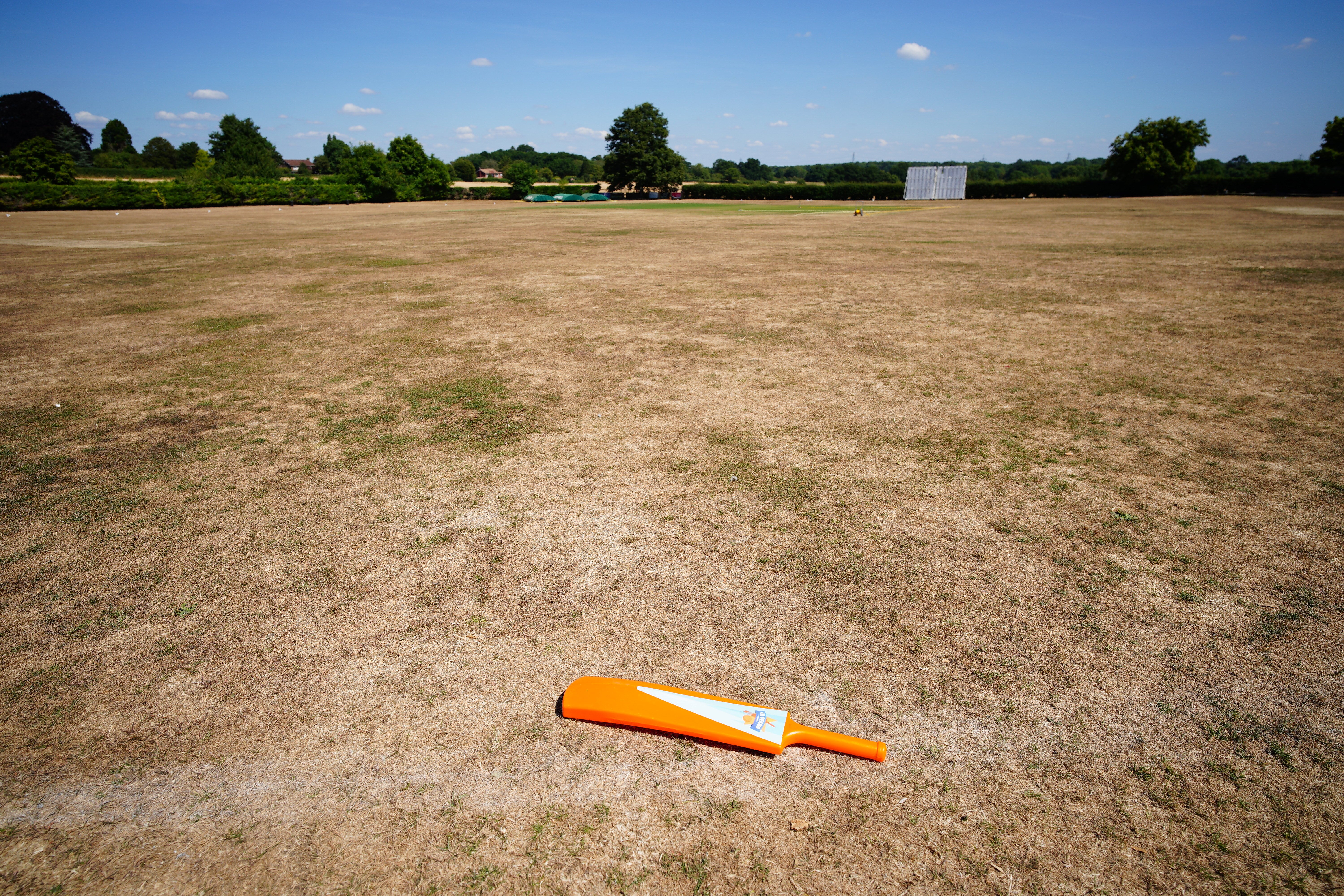Village suffers in the heat without a drop of rain in all of July
The cricket club at Odiham in Hampshire is having to water its wicket at least once a day, while farmers have to buy in food for cattle.

Your support helps us to tell the story
From reproductive rights to climate change to Big Tech, The Independent is on the ground when the story is developing. Whether it's investigating the financials of Elon Musk's pro-Trump PAC or producing our latest documentary, 'The A Word', which shines a light on the American women fighting for reproductive rights, we know how important it is to parse out the facts from the messaging.
At such a critical moment in US history, we need reporters on the ground. Your donation allows us to keep sending journalists to speak to both sides of the story.
The Independent is trusted by Americans across the entire political spectrum. And unlike many other quality news outlets, we choose not to lock Americans out of our reporting and analysis with paywalls. We believe quality journalism should be available to everyone, paid for by those who can afford it.
Your support makes all the difference.The cricket club in one of Britain’s driest villages has had to water its wicket at least once a day and local farmers are having to spend significant sums on buying in food for their cattle, as the community copes with zero rainfall in July.
Odiham, a village in Hampshire, had no rain last month, according to the Met Office, with farmers, florists and the local cricket club forced to adapt to the parched conditions.
Cara Evans, bar and events manager for the Odiham and Greywell Cricket Club, said grounds officials have had to water the wicket at least once a day to ensure it is safe to play on the hardened ground.
She told the PA news agency: “The drought has meant that we’ve had to water that wicket so much more often than we would normally have to do, and to try and keep it green and safe to play on.
“The outfield is one story, but if the wicket is not safe and is too dry, the game doesn’t get played. So to try and keep that wicket green and at a safe level has been quite a pressure on our grounds team.”
She added: “You’ll generally find one of them up here at least every day and we try to water the pitch as much as possible.”
Although the drought has made playing the game more difficult, Ms Evans said the weather has helped raise interest in the game among locals.
However, Ms Evans said that there were concerns for the longer-term impact of the dry spell amid hosepipe bans.
“We are at the moment allowed to water our wicket but if they come in more stringent, is that going to be a, ‘No you can’t do that anymore’? In which case, does that mean we are going to have to cancel cricket games?” she added.
When asked how she felt about the club being able to continue to use significant amounts of water when others in the village had to cut back, she said: “You walk around Odiham and there’s so many farmers and so many gardens that are kept so beautifully and we’re being allowed to keep our wicket green but other people aren’t and that’s difficult. That’s not fair to them.”
Meanwhile, a local farmer, who did not wish to be named, estimated he has had to spend 50% more on food for his cattle this year compared to 2021. His cows normally graze on the grass in his fields, but this has been unable to grow in the arid conditions.
He told PA that the weather “affects us in that the grass hasn’t grown at all, so that means we’re short of food and we have to buy in food,” adding that “it’s going to be a very costly thing” for the business.
He is also concerned about the risk of wildfire, adding: “You’ve just got to be very vigilant about fires and bottles lying around and things like that, or to try and stop it as best we can.”